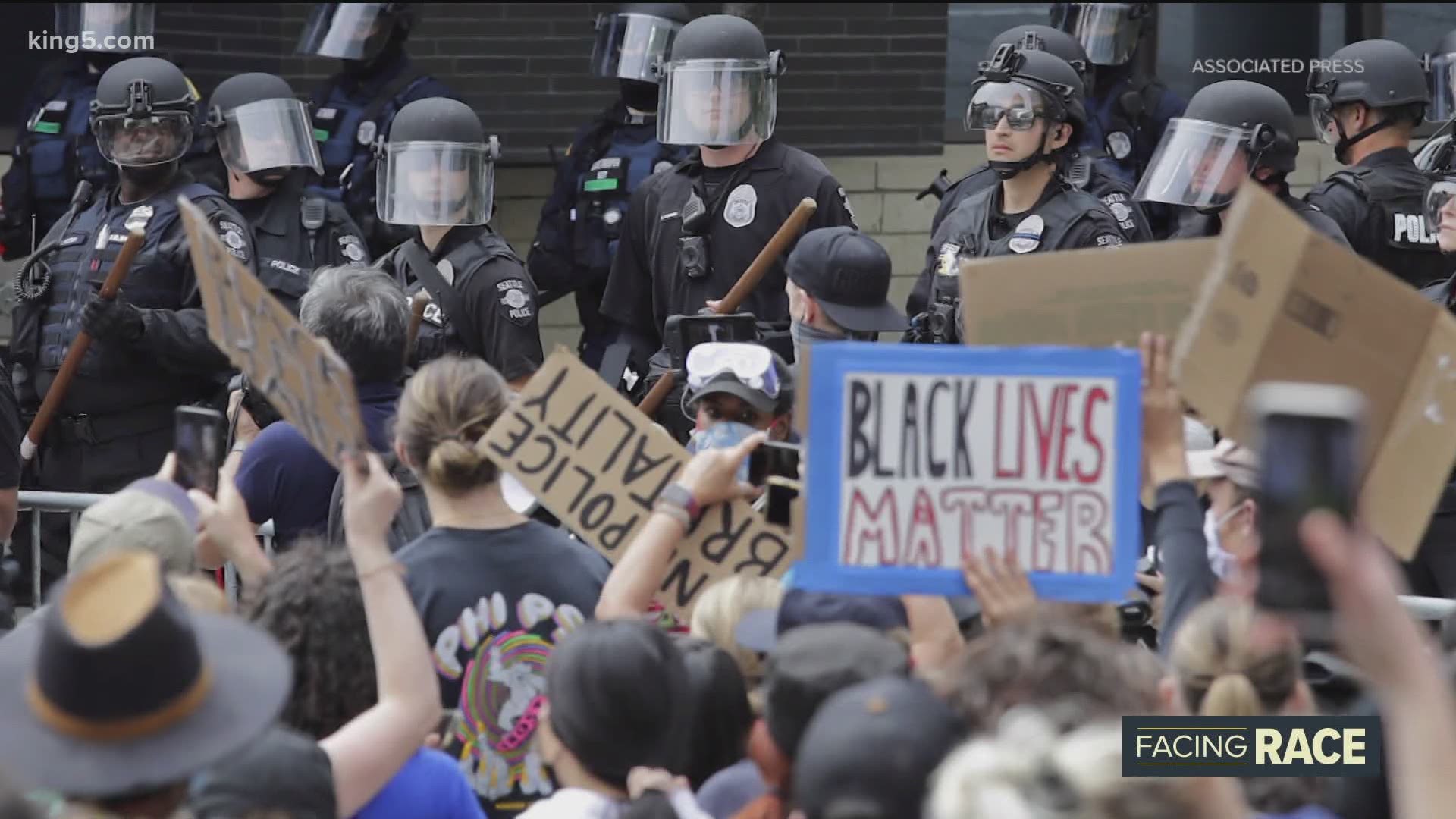SEATTLE — The cellphone video of George Floyd being killed on May 25 catapulted our country into a summer of protests with millions of Americans pushing for – and demanding – long-overdue change.
And there were some immediate symbolic changes to be sure. But what about changes in policies or policing itself? How much has really changed in the seven months since?
We take a look at some of the things that are different.
Monuments, art and symbols
Hundreds of confederate statues from the deep south, as NBC News reports, to Seattle were taken down by activists or by local governments.
Black Lives Matter murals and tributes to those who died at the hands of police went up on front lawns and city streets in Seattle and around the world.
NBC News reports House Speaker Nancy Pelosi had four portraits of Confederate congressmen taken down at the U.S. House of Representatives.
CNN reports NASCAR banned the Confederate flag, along with each branch of the U.S. military. NBC News reports Mississippi became the last state to eliminate the Confederacy from its state flag.
Several sports franchises and schools changed their mascots from Washington D.C.'s NFL team to Juanita High School in Kirkland. The Washington Redskins became the Washington Football Team, and Juanita dropped the Rebels mascot, although a new one has not yet been decided.
Policing
House Democrats passed the George Floyd Justice in Policing Act to combat police misconduct, excessive force and racial bias in policing. Although, it still hasn't been brought to the Republican-controlled Senate floor.
School boards in Seattle, Minneapolis, Denver and Portland all severed ties with local police departments, turning campus security over to private organizations.
The city of Seattle banned police chokeholds, as did San Francisco, Washington D.C. and others.
Mayors and police chiefs from multiple cities, including Chicago, Baltimore and Phoenix, joined forces to create the Police Reform and Racial Justice Working Group.
Dallas Police adopted a "duty to intervene" rule, requiring officers to intervene if another one is using excessive force.
Los Angeles, Minneapolis and Seattle all reduced their police departments' budgets, although none were slashed as much as some activists wanted. Seattle's 2021 budget sliced police department funds by nearly 20% and does not force major layoffs.
But in Seattle, the contention between the mayor, police and city council over police funding triggered the sudden retirement of Carmen Best, the city's first African American police chief, in September.
More attention came to the investigation over Manuel Ellis' death in Tacoma police custody in March.
By next year, police departments in Tacoma, Everett and Bremerton will join officers in Seattle, Spokane, Kent and other cities who are required to wear body cameras. Although to be fair, all of the departments that will add body cams had plans in the works well before Floyd was killed.
RELATED: Most Washington law enforcement agencies don’t use body or dash cameras, KING 5 investigation finds
Politics and policy
At the state level in Washington, Gov. Jay Inslee established a social justice committee, and lawmakers are working on various pieces of legislation that aim to improve police accountability by making it easier to decertify bad cops, creating a use-of-force database, having civilians lead investigations of misconduct, mandating officers to intervene when they see misconduct or banning police chokeholds statewide.
But no laws have been enacted, in part because state politicians haven't been in Olympia since March and won't reconvene until the new year.
When lawmakers do reconvene, it will be a more diverse body than ever before. Many of the candidates registered for the general election before Floyd was killed, but more people of color were elected to the state Legislature than ever before. The number of Black women will triple from two to six.
And Washington elected a Black woman to U.S. Congress for the first time when Marilyn Strickland won the open seat in the 10th Congressional District.
This story was produced as part of “Facing Race,” a KING 5 series that examines racism, social justice and racial inequality in the Pacific Northwest. Tune in to KING 5 on Sundays at 9:30 p.m. to watch live and catch up on our coverage here.

